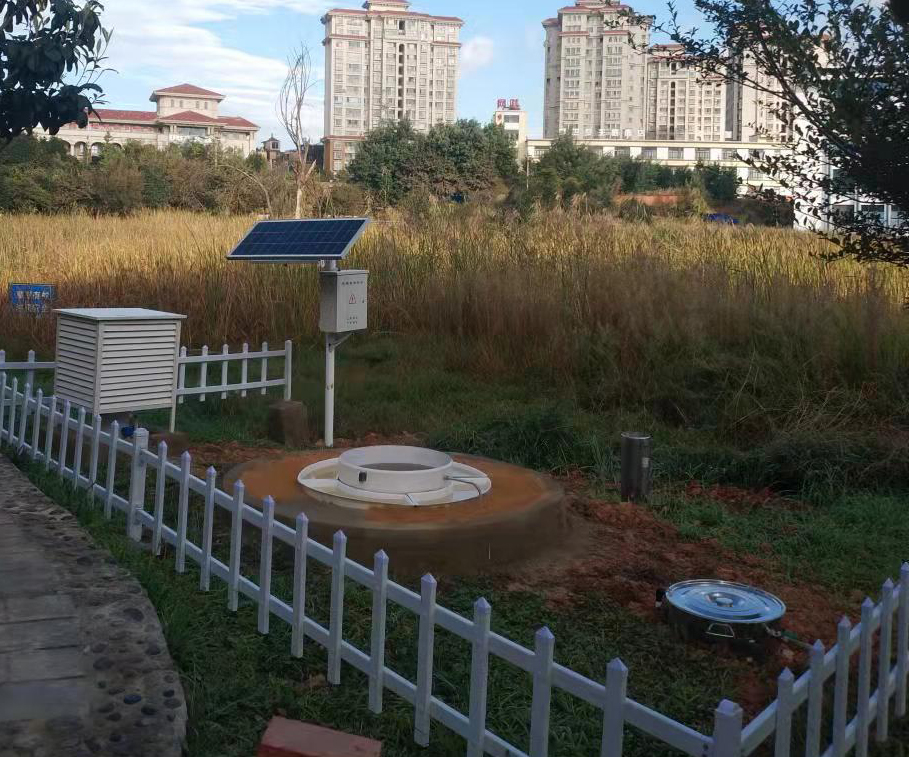

— Blogs —
—Products—
 Consumer hotline +8618073152920
Consumer hotline +8618073152920 WhatsApp:+8615367865107
Address:Room 102, District D, Houhu Industrial Park, Yuelu District, Changsha City, Hunan Province, China
Product knowledge
Time:2025-01-22 11:43:25 Popularity:178
With the continuous development of industrial production, industries are increasingly demanding improvements in production efficiency, resource utilization, environmental protection, and safety. Evaporation rate sensors, as precise monitoring devices, are widely used in various industries due to their advantages in monitoring liquid evaporation. They have become important tools for improving production efficiency, ensuring production safety, and protecting the environment.
In industries such as chemicals, pharmaceuticals, and food processing, liquid evaporation losses (such as water, solvents, chemicals, etc.) often pose a significant problem during production processes. Evaporation rate sensors can accurately measure the amount of liquid loss by monitoring the evaporation rate in real-time. This helps businesses promptly adjust their production processes to reduce resource waste. Especially in industries that require strict cost control, reducing liquid evaporation losses not only saves raw materials but also lowers production costs and improves overall resource utilization efficiency.
Humidity and temperature are key factors influencing product quality, production efficiency, and the comfort of working environments in industrial production processes. By measuring the evaporation rate of liquids, evaporation rate sensors indirectly estimate changes in environmental humidity and temperature, providing important data to help businesses adjust these factors in real-time, ensuring process stability and high product quality standards. For example, in food processing or pharmaceuticals, even slight changes in temperature and humidity can affect product quality and final outcomes.
In special industries such as petrochemical, hazardous material storage, and transportation, liquid evaporation may increase the concentration of combustible gases, creating potential safety hazards. Evaporation rate sensors can monitor evaporation in real-time, and if an abnormal increase in evaporation rate is detected, they can trigger an alarm to alert operators to take preventive actions, such as closing valves, adjusting temperatures, or improving ventilation, thus reducing the risk of fires or explosions. This real-time safety monitoring helps businesses identify and eliminate potential safety hazards promptly, ensuring safe production.
With the increasing awareness of environmental protection, businesses are facing stricter environmental regulations. Evaporation rate sensors play an increasingly significant role in environmental monitoring. They can measure the evaporation rates of wastewater, waste gases, and chemical solvents, providing data support for assessing their environmental impact. By monitoring evaporation rates in real-time, businesses can analyze whether evaporated waste gases exceed regulatory limits and take effective measures, such as improving emission processes or optimizing production workflows. This not only helps meet environmental regulations but also enhances the company's social responsibility and environmental image.
Evaporation rate sensors can be integrated with industrial automation control systems to create an intelligent production monitoring and adjustment system. By setting upper and lower evaporation rate limits, the system will automatically adjust parameters, such as activating cooling devices, changing flow control, or adjusting humidity levels, whenever evaporation rates exceed preset ranges. This automated monitoring system significantly enhances production efficiency, reduces human intervention, and minimizes operational risks while ensuring that evaporation rates fluctuate within a reasonable range, thus maintaining high efficiency and stability in production processes.
In energy-intensive industries like power generation, steel production, and fertilizer manufacturing, the evaporation rate of cooling water and circulating water systems is an important parameter for energy management. Evaporation rate sensors can precisely monitor the evaporation situation in these systems, helping businesses develop more scientifically based energy management plans. By reducing evaporation losses and optimizing water resource usage, businesses can significantly lower energy consumption and water waste. This not only improves energy efficiency but also reduces production costs and enhances the company's competitiveness.
Evaporation rate sensors are also increasingly applied in greenhouse agriculture and aquaculture. In these fields, the management of moisture and temperature is crucial for the healthy growth of crops and aquatic products. Evaporation rate sensors can accurately monitor the evaporation rate of water, providing data support for water resource management in agriculture and aquaculture. By precisely controlling humidity and temperature, businesses can improve crop yields and promote the healthy growth of aquatic life.

As a precise monitoring tool, the evaporation rate sensor has extensive industrial application value. In areas such as liquid evaporation loss monitoring, humidity and temperature control, safety production, environmental protection monitoring, automation control, and energy management, the application of evaporation rate sensors helps businesses improve production efficiency, reduce resource waste, ensure production safety, and optimize environmental protection, thereby driving the sustainable development of industries. With continuous technological advancements, the application scope of evaporation rate sensors will expand further, and their role in industrial production will become even more significant, creating more economic benefits and social value for enterprises.
Related recommendations
Sensors & Weather Stations Catalog
Agriculture Sensors and Weather Stations Catalog-NiuBoL.pdf
Weather Stations Catalog-NiuBoL.pdf
Related products
 Combined air temperature and relative humidity sensor
Combined air temperature and relative humidity sensor Soil Moisture Temperature sensor for irrigation
Soil Moisture Temperature sensor for irrigation Soil pH sensor RS485 soil Testing instrument soil ph meter for agriculture
Soil pH sensor RS485 soil Testing instrument soil ph meter for agriculture Wind Speed sensor Output Modbus/RS485/Analog/0-5V/4-20mA
Wind Speed sensor Output Modbus/RS485/Analog/0-5V/4-20mA Tipping bucket rain gauge for weather monitoring auto rainfall sensor RS485/Outdoor/stainless steel
Tipping bucket rain gauge for weather monitoring auto rainfall sensor RS485/Outdoor/stainless steel Pyranometer Solar Radiation Sensor 4-20mA/RS485
Pyranometer Solar Radiation Sensor 4-20mA/RS485
Screenshot, WhatsApp to identify the QR code
WhatsApp number:+8615367865107
(Click on WhatsApp to copy and add friends)